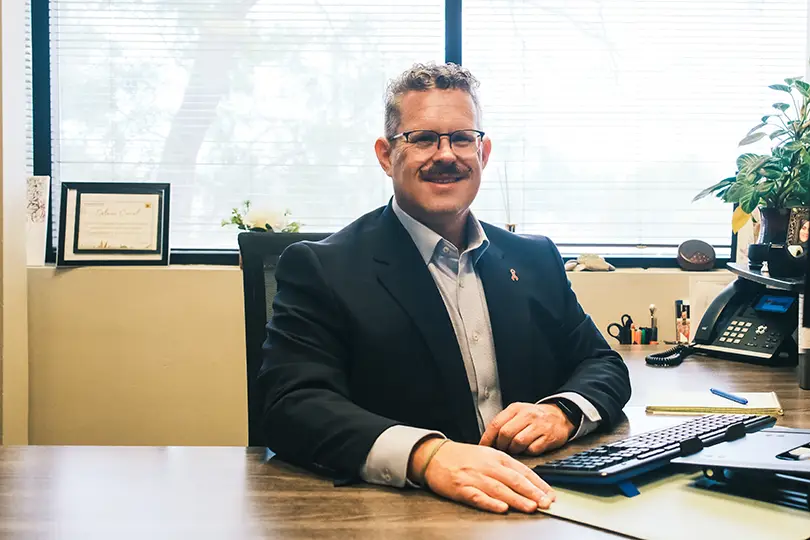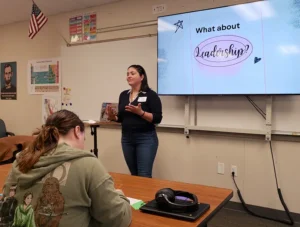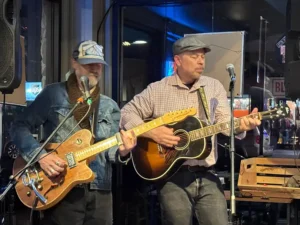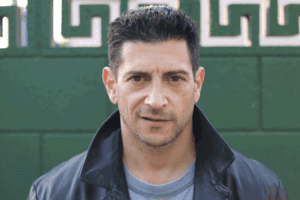Sacramento nonprofit Sunburst Projects started off as a summer camp for children living with HIV and AIDS called Camp Sunburst in 1988 and has since expanded to provide medical case management, social and mental health services and education and prevention services to affected families and individuals of all ages in Sacramento, Placer and El Dorado counties.

Executive Director Jake Bradley-Rowe joined Sunburst Projects in 2020, and has helped expand the organization’s scope. Already a challenging field for many health care advocates to navigate, the Trump administration has complicated matters. In May, the Trump administration released a budget request that included a reduction of $74 million in federal funding for the Ryan White HIV/AIDS Program — the largest funding source for Sunburst Projects. While Congress has yet to approve a budget for the current fiscal year, in July the Senate ultimately rejected the administration’s proposed cuts for the previous fiscal year that kept HIV prevention and treatment funding at its current levels.
Solving Sacramento spoke with Bradley-Rowe about how the organization is navigating funding insecurity while continuing to provide a variety of support programs for those affected by HIV/AIDS.
Tell me about the first Camp Sunburst.
[Camp Sunburst] was how we were founded, by our founder Geri De La Rosa. Originally, she was working in San Francisco during the beginning of the [AIDS] epidemic and recognized that there wasn’t really anyone that was focused on the pediatrically infected, prenatally infected babies and women. She took the [first Camp Sunburst] idea of a kids’ camp for kids with cancer and she transitioned it over to kids with HIV.
That happened in 1988, and now the camp has been used as a model all over the world, from Kenya to the U.K. to many places in the United States.
The camp is a week-long, free therapeutic-based camp. Early on, the camp was really focused on getting kids that were severely sick living with HIV that maybe had been on medication that was given multiple times a day, or they were bedridden. We wanted to get them out of their homes and just to be a kid for a week [and] forget about the stresses of that.
What do you see as the major factors driving the continued prevalence of HIV in the Sacramento area?
People lack the understanding of the importance of getting an HIV test. … When we launched our education outreach and prevention program in our Sunburst Clinic, we really looked at all the barriers to getting access to care and getting free testing, and the reasons why people who needed these tests did not come get them.
Some of those [reasons] were confidentiality. They wanted to know that there was a confidential space that wasn’t billing their insurance, that their partners or significant others or spouses couldn’t find out, and so we established a confidential, very-few-questions-asked type of testing.
By funding our program through grants and writing grants to make sure we can do this, we’re able to do it without asking all those questions. You tell us how you want to find out your results. Maybe you want them to text you, you want to call us back, we can send you a letter, and we provide them to you without payment, so you’re not running a card here or exchanging money.
What do you see as the most promising solutions to preventing the spread of HIV?
Educating the general public [that] HIV is still being spread. It still is a reason to get a test, that sexual health is something that everyone needs to recognize … and that’s getting tested, having many different places that serve different communities available like some of our other community partners, the Sacramento LGBT Community Center, Sacramento Native American Health Center, having those walk-in opportunities for easy access, going to an event and seeing that there’s a tent there that you can get an HIV test at.
It is really key because it builds community, it shows the opportunities that are out there, and really the only way we’re ever gonna end this epidemic is by getting everyone who has HIV into treatment and care, so they’re undetectable and everyone who doesn’t know their status to know that, so that if they are positive, we get them into care.
What evidence exists to show the effectiveness of these solutions?
The idea that if you’re undetectable, you’re untransmittable is the biggest evidence I think we can have for people living with HIV. We know that if you are on your medication and the viral load of HIV in your body is undetectable, you are not transmitting it to other people.
Then for those that aren’t HIV positive, knowledge is power. Knowing your status, taking responsibility for your sexual health is key. So getting an HIV test, establishing yourself on PrEP, pre-exposure prophylaxis, are some of the most powerful things out there that we have in our tool kit.
Sunburst Projects is what we call a status neutral organization. Although we don’t prescribe medication here, we have partners in the community like Sacramento County Sexual Health Clinic and Sacramento Native American Health Center that provide us with sample size packs of medication, both for PrEP and rapid ART, antiretroviral treatment.
When someone in our clinic tests positive, we give them a starter pack the day they’re here, put it in their hand, and help them start the practice of taking that medication.
In Sacramento, oftentimes we find that our community is a little bit behind San Francisco or LA or New York City. This is something they’ve been doing for a long time and when I came to Sunburst, I said there’s no reason that we shouldn’t be the same. If this is a standard practice in other places in the country, then we should do it here.
What limitations around these solutions exist? Have federal funding cuts impacted Sunburst Projects?
As of today, we have actually not lost any funding. … The state of California stepped up, a lot of advocacy had happened, and through our partnerships with our elected officials we advocated for their help in voting against certain things.
A [funding] contract that started in March that we only were able to sign in September meant that all of those months in between we had to float ourselves, our salaries, our rent costs, keeping the lights on, being able to buy condoms. It has a major impact. … We’re not the American Red Cross who has millions and millions of dollars. … That’s just not the reality for little organizations like us, so we’re very lucky that we made it.
[These] incredible advances that we have made … has all just stopped because in [the administration’s] mind, this is not an issue that we need to be focused on. Our federal government has taken the stance that HIV is a connection in relation to those who identify as LGBT or trans, and we know where they lie with that.
That is the issue that we’re going to continue to face until we have a new administration, and the reality is that organizations like ours serve regardless and we will continue to do that. But we’ve got to be loud. We have to be proud about this, we’ve got to keep talking about it. We’ve got to stand up and fight back.
This Q&A was edited for length, clarity and flow.
This story is part of the Solving Sacramento journalism collaborative. Our partners include California Groundbreakers, Capital Public Radio, Hmong Daily News, Russian America Media, Sacramento Business Journal, Sacramento News & Review and Sacramento Observer. Support stories like these here, and sign up for our monthly newsletter.














